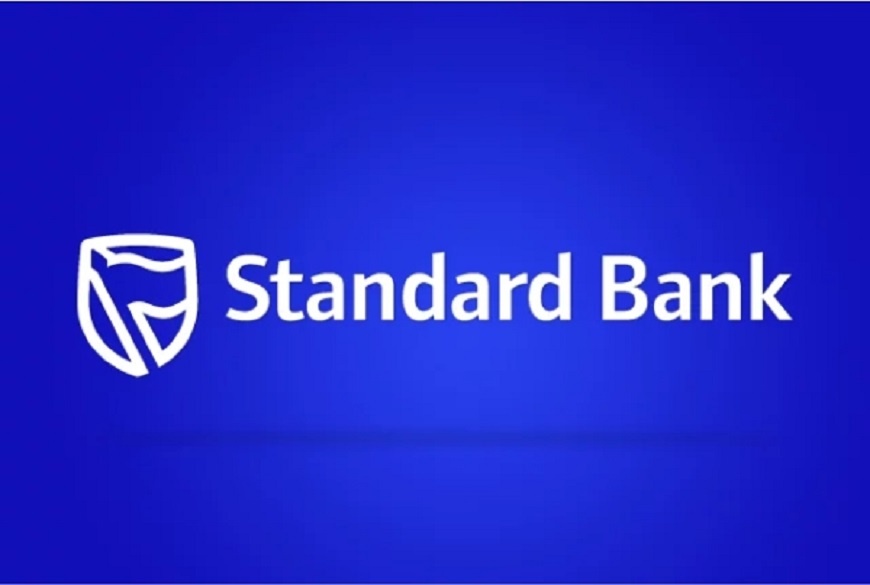Banking
Digital Transformation Solutions for Banking

Digital transformation is a hot topic in banking. Banks are looking for ways to become more agile, to better serve their customers, and compete in a digital world. In this article, we’ll discuss the digital transformation solution for banking. Keep reading to learn more about digital transformation and how it can help the banking industry.
What is digital transformation?
Digital transformation is the process of transforming how an organization operates to better meet the needs of its customers and employees. It includes changes to organizational structures, processes, and practices that allow the business to take advantage of digital technologies and channels to improve performance and outcomes. Digital transformation can be applied in any industry, but it’s particularly relevant for businesses in highly regulated industries like banking, where there are large legacy systems that need to be modernized.
Banks are under pressure from both consumers and regulators to upgrade their technology infrastructure. Consumer demand for new services like mobile banking and payments has put pressure on banks to offer digital experiences that are fast, convenient, and secure. At the same time, regulators are increasingly focused on ensuring that banks have robust cyber security measures in place to protect customer data. Digital transformation can help banks address both of these challenges by helping them modernize their technology infrastructure and improve their cyber security posture.
What factors should banks consider when digitally transforming?

There are a number of factors that banks must take into account when planning their digital transformation. One of the most important is to ensure that the new architecture can support multiple channels and devices. This will allow customers to interact with the bank in the way that is most convenient for them. They may want to use the bank’s website on their computer, their mobile phone, or even a tablet. They may also want to use the bank’s services through social media, such as Facebook or Twitter.
Another important factor to consider is the range of services that the bank offers. The architecture must be able to support not only traditional banking services but also new services that are being developed specifically for the digital age. These may include things like mobile payments and money transfers.
The final factor to consider is the security of the new system. Banks must ensure that their customers’ data is protected at all times. This includes both the data that is being transmitted through the various channels and devices, as well as the data that is being stored.
Developing an architecture that can accommodate multiple channels and devices is essential for banks that want to undergo a successful digital transformation. It will allow them to provide a range of services that meets the needs of their customers, and it will ensure that their data is always protected.
What benefits will be seen once the solution is implemented?

The banking sector is under pressure to invest in digital transformation to remain competitive and meet the needs of customers, who are increasingly using mobile devices and online channels to conduct transactions.
There are several benefits that banks can expect to see once they implement digital transformation. First, banks can improve customer experience by making it easier for customers to conduct transactions through convenient online and mobile channels. In addition, banks can reduce costs by automating processes that were previously done manually. This will allow banks to operate more efficiently and make more money available to invest in other areas such as product development and customer service. Finally, digital transformation can help banks stay ahead of the competition by enabling them to offer new services that cater to the needs of modern consumers.
Cloud migration is a popular digital transformation solution for banks.

Cloud Migration is one of the many digital transformation solutions for banking. It is the process of moving enterprise applications and data to the cloud. The benefits of cloud migration include improved efficiency, scalability, and agility. Cloud migration can also help reduce costs and improve security.
There are many factors to consider when deciding whether or not to migrate to the cloud. One of the most important is the business case. The benefits of cloud migration need to outweigh the costs. Another consideration is the readiness of the organization to move to the cloud. The organization must have the right infrastructure, processes, and culture in place to be successful.
The cloud can be a complex environment and not all applications are suitable for migration. Applications need to be evaluated to see if they are cloud-friendly. They need to be able to run in a cloud environment and be able to scale up and down as needed.
Once the decision to migrate to the cloud has been made, the organization needs to develop a plan. The plan should include the steps needed to migrate the applications and data. It should also include the resources needed and the estimated time to completion.
The cloud migration process can be complex but there are also many benefits to be gained. Organizations that are able to successfully migrate to the cloud can improve their efficiency, agility, and scalability. They can also reduce their costs and improve their security.
Banks can use big data analytics to digitally transform their organizations.

Big data analytics is one of the solutions that banks are turning to in order to stay ahead of the curve.
The use of big data analytics can help banks to gain a better understanding of their customers, and to identify and understand potential risks. It can also help banks to improve their customer service, and to develop new products and services.
Big data analytics can help banks to make better decisions by providing them with insights that would not be possible to obtain using traditional methods. It can also help to improve the efficiency of banking processes and to reduce costs.
The use of big data analytics is becoming increasingly important, and banks that don’t embrace it will likely find themselves at a disadvantage. Those that do adopt big data analytics will be in a better position to take advantage of the opportunities that digital transformation solutions present.
Digitally transform your banking business.
Digital transformation solutions are important for banking because they can help organizations to improve customer experience, increase efficiency and agility, and reduce costs. Overall, these solutions can help banks to compete in the digital age and provide better services to their customers.
Banking
OneDosh Raises $3m to Build Stablecoin-Powered Infrastructure for Cross-Border Payments

By Adedapo Adesanya
OneDosh, a fintech company focused on stablecoin-powered payments, has raised $3 million in pre-seed funding to develop infrastructure aimed at improving how individuals and businesses move money across borders.
The firm, co-founded in February 2025 by the trio of Mr Jackson Ukuevo, Mr Godwin Okoye, and Mr Babatunde Osinowo, was shaped by the founders’ firsthand experiences navigating blocked cards, frozen accounts, delayed international transfers, and currency restrictions while living and travelling globally. These challenges highlighted a consistent gap between the demand for seamless global payments and the systems available to support them.
Now, OneDosh operates in the United States and Nigeria, two active remittance corridors with strong demand for faster and more flexible payment solutions. Through our platform, users can transfer funds from the U.S. to Nigeria, hold value in stablecoins, and spend using stablecoin-powered cards compatible with Apple Pay and Google Pay, subject to network and regional availability.
Commenting on OneDosh’s mission, Mr Ukuevo said, “Millions of people are locked out of efficient cross-border payments because legacy systems are slow, expensive, and restrictive. OneDosh is building the infrastructure to change that, starting with the U.S.-Nigeria corridor and expanding from there. This funding helps us turn stablecoins into practical payment solutions for real people and businesses.”
“Beyond our current consumer-facing products, we are building payment infrastructure designed to connect wallets, cards, and markets into a single programmable system. Our approach focuses on enabling compliant, real-world use cases for stablecoins, particularly in regions where traditional cross-border payment systems remain costly or inefficient,” he added.
OneDosh’s founding team brings experience from organisations such as ZeroHash, Plaid, and Amazon, with backgrounds spanning payments infrastructure, compliance operations, and large-scale product development.
The pre-seed funding will be used to expand into additional payment corridors, deepen liquidity partnerships, and support senior team hires. These efforts are intended to boost capacity to support cross-border spending and settlement use cases as adoption of digital payment technologies continues to grow.
With the increasing interconnectedness of global commerce, OneDosh aims to contribute infrastructure designed to support faster, more accessible cross-border payments using stablecoins as a settlement layer.
Banking
EFCC Accuses Banks of Aiding N18.7bn Investment, Airline Discount Scams

By Modupe Gbadeyanka
One new generation bank and six financial technology (fintech) and microfinance banks have been accused of aiding fraudsters in defrauding Nigerians through fraudulent schemes.
This allegation was made by the Economic and Financial Crimes Commission (EFCC) while addressing the media in Abuja on Thursday.
The Director of Public Affairs of the EFCC, Mr Wilson Uwujaren, said these schemes involved about N18.7 billion fraudulent investment and airline discount scams.
He disclosed that in the airline discount fraud, fraudsters lure their victims to lose their hard-earned money by involving “a string of carefully devised airline discount information that any unsuspecting foreign traveller will fall for.”
“What they do is to advertise a discount system in the purchase of flight tickets of a particular foreign carrier. The payment module is designed in such a way that their victims would be convinced that the payment is actually made into the account of the airline. No sooner the payment is made than the passenger’s entire funds in his bank account are emptied,” he narrated to newsmen.
According to him, over 700 victims have fallen into the trap of fraudsters through the scheme with a total loss of N651.1 million to them.
Though the commission succeeded in recovering and returning N33.6 million to victims of the scam, Mr Uwujaren cautioned Nigerians to be more vigilant as foreign actors involved in the scheme are converting their illicit sleaze into cryptocurrency and moving them into safer destinations through Bybit.
Narrating the second scheme, the EFCC spokesman said it involved a company named Fred and Farid Investment Limited, simply called FF investment, which lured Nigerians into bogus investment arrangements.
He said over 200,000 victims have been defrauded in this regard, with about N18.1 billion raked in through nine companies offering diverse investment packages. .
In all, more than 900 Nigerians have been fleeced by fraudsters through the connivance of banks.
Mr Uwujaren claimed foreign nationals are behind the schemes, with three Nigerian accomplices who have been arrested and charged to court.
On the specific role of banks and fintechs in the schemes, two other directors of the EFCC, Abdulkarim Chukkol in charge of Investigations, and Mr Michael Wetcas in charge of Abuja Zonal Directorate, explained that, “a new generation bank and six fintechs and microfinance banks are involved in this. The financial institutions clearly compromised banking procedures and allowed the fraudsters to safely change their proceeds into digital assets and move into safe destinations”
“A total of N18,739, 999,027.35 had been moved through our financial system without due diligence of customers by the banks. It is worrisome that investigations by the commission showed that cryptocurrency transactions to the tune of N162 billion passed through a new generation bank without any due diligence. Investigations also showed that a single customer maintained 960 accounts in the new generation bank and all the accounts were used for fraudulent purposes.”
The EFCC called on regulatory bodies to bring financial institutions to compulsory compliance with regulations in the areas of Know Your Customers (KYC), Customer Due Diligence (CDD), Suspicious Transaction Reports (STRs) and others.
The agency charged regulatory bodies that Deposit Money Banks (DMBs), fintechs, MFBanks found to be aiding and abetting fraudsters should be suspended and referred to the EFCC for thorough investigation and possible prosecution.
It also warned that negligence and failure to monitor suspicious and structured transactions by banks would no longer be allowed, assuring that it will continue its work against money laundering by fraudulent actors.
Mr Uwujaren also tasked financial institutions to firm up their operational dynamics and save the nation from leakages and compromises bleeding the economy.
Banking
Nigeria Records Significant Decline in Payment Fraud Losses

By Adedapo Adesanya
The Nigeria Inter-Bank Settlement System (NIBSS) Plc has disclosed that electronic payment fraud losses declined significantly in 2025 due to coordinated actions by regulators, security agencies and industry operators.
Speaking at the 2026 Nigeria Electronic Fraud Forum (NeFF) Technical Kick-Off Session in Lagos, attended by regulators, banks, payment service providers, identity agencies and law enforcement agencies, the chief executive of NIBSS, Mr Premier Oiwoh, said the development showed the need to strengthen collaboration to sustain recent declines in electronic fraud and support deeper digital inclusion.
“The reduction in electronic payment fraud losses was recorded despite rising transaction volumes.
“We can only attribute this improvement to interventions by CBN, the Nigerian Financial Intelligence Unit (NFIU), security agencies and enhanced monitoring across the payments ecosystem,” he disclosed, noting, however, that internet banking and e-commerce remained the main fraud channels, with social engineering and insider-assisted fraud emerging as dominant trends.
The NIBSS boss said the gains recorded could only be sustained through stricter controls, stronger regulatory compliance and industry-wide collaboration.
He stressed zero tolerance for non-reporting of fraud, warning that weak reporting, poor identity verification and abuse of transaction limits continued to expose the system to risks.
Mr Oiwoh pointed out that the effective Know-Your-Customer (KYC) and Know-Your-Device (KYD) processes, supported by real-time validation of NIN and BVN, were critical to curbing fraud.
He added that stronger reporting requirements, joint industry action and a central “Persons of Interest” database—covering over 13,000 individuals—had improved detection and prevention.
He disclosed that the NIBSS was working with the CBN and other stakeholders on advanced AI-driven monitoring tools and a new national payment infrastructure to further strengthen fraud prevention and deepen financial inclusion.
Also speaking, the Deputy Governor, Financial System Stability, CBN, Mr Philip Ikeazor, said sustained cooperation under NeFF since 2011 had strengthened the resilience and security of Nigeria’s payments system.
Mr Ikeazor, represented by Mr Ibrahim Hassan, Director, Development Finance Institutions Supervision Department, said the sustained cooperation had reduced fraud losses in spite of rapid growth in digital transactions.
He highlighted industry achievements, including migration to EMV chip-and-PIN cards, two-factor authentication, enhanced transaction monitoring, centralised fraud reporting, and the integration of the Bank Verification Number (BVN) with the National Identification Number (NIN).
“Emerging threats such as social engineering, SIM-swap abuse, insider compromise and Authorised Push Payment (APP) scams require faster, integrated and proactive responses.
“The industry is committed to reducing fraud response times to under 30 minutes and to adopt enterprise-wide fraud management systems leveraging real-time analytics and shared intelligence,” the deputy governor said.
On her part, Mrs Rakiya Yusuf, Director, Payments System Supervision Department, CBN, and Chairman, Nigeria Electronic Fraud Forum (NeFF), urged continued coordinated action by regulators, banks, payment providers and law enforcement agencies.
Mrs Yusuf highlighted gains such as EMV chip-and-PIN migration, two-factor authentication, and improved identity management.
She warned that emerging threats required standardised frameworks, faster response times, and proactive use of ISO 20022 and analytics to sustain fraud reduction, expressing confidence that the forum’s deliberations would reinforce the foundations for a safer and more trusted digital financial ecosystem in Nigeria.
-

 Feature/OPED6 years ago
Feature/OPED6 years agoDavos was Different this year
-
Travel/Tourism9 years ago
Lagos Seals Western Lodge Hotel In Ikorodu
-

 Showbiz3 years ago
Showbiz3 years agoEstranged Lover Releases Videos of Empress Njamah Bathing
-

 Banking8 years ago
Banking8 years agoSort Codes of GTBank Branches in Nigeria
-

 Economy3 years ago
Economy3 years agoSubsidy Removal: CNG at N130 Per Litre Cheaper Than Petrol—IPMAN
-

 Banking3 years ago
Banking3 years agoSort Codes of UBA Branches in Nigeria
-

 Banking3 years ago
Banking3 years agoFirst Bank Announces Planned Downtime
-

 Sports3 years ago
Sports3 years agoHighest Paid Nigerian Footballer – How Much Do Nigerian Footballers Earn























